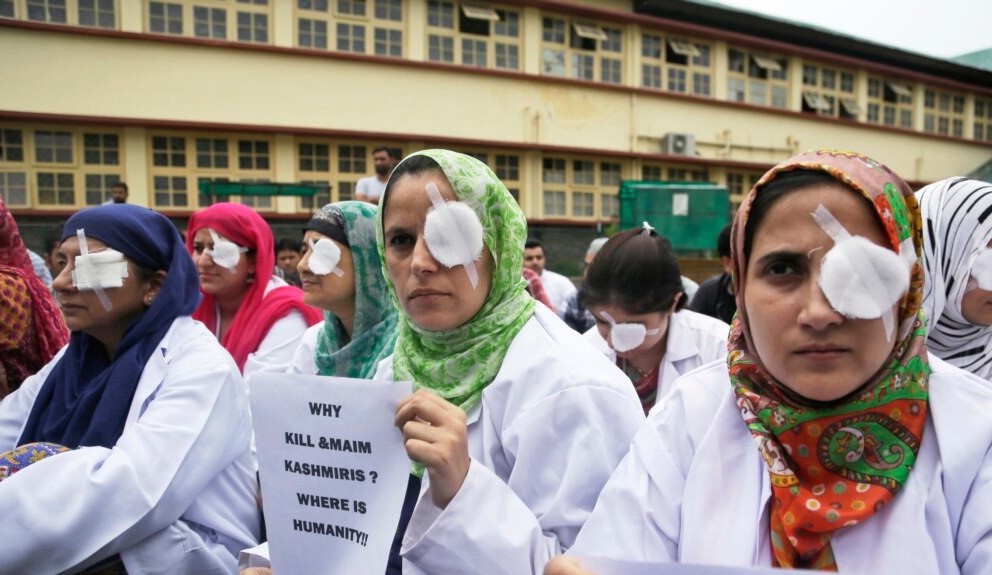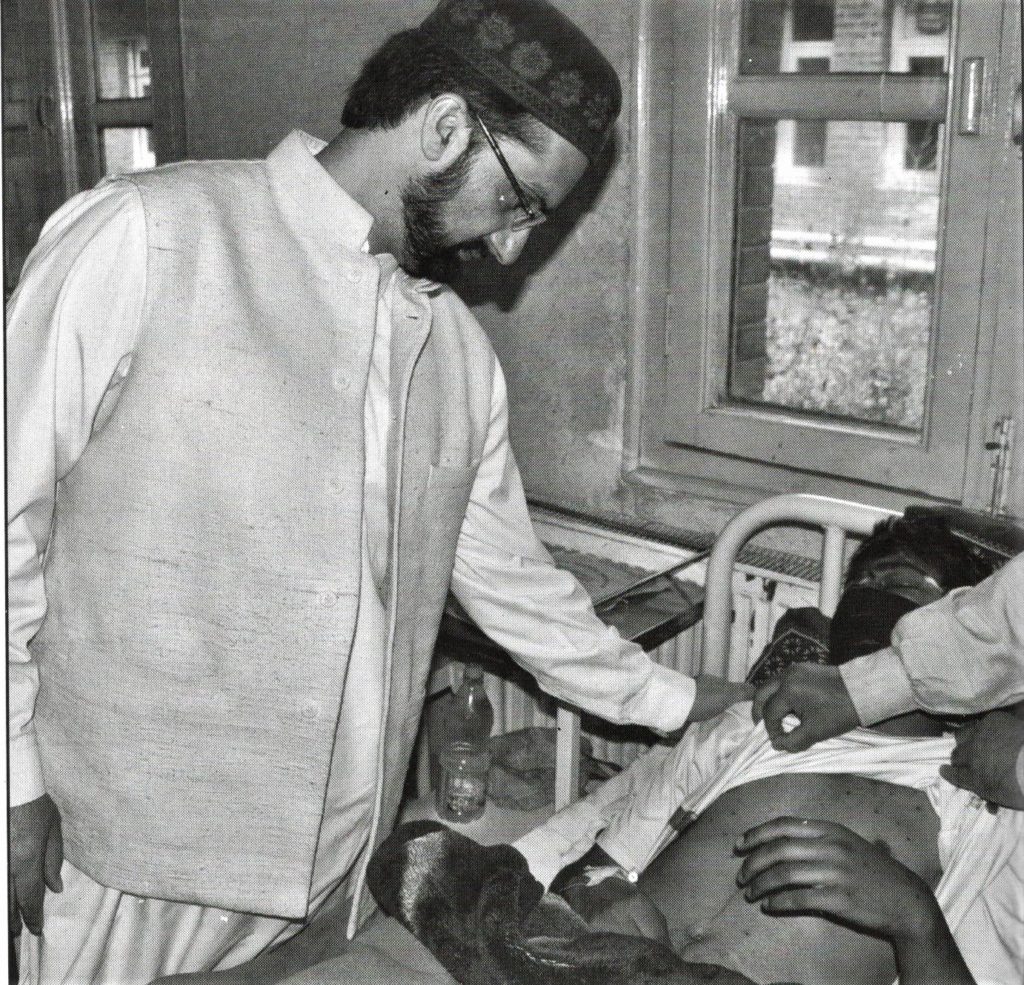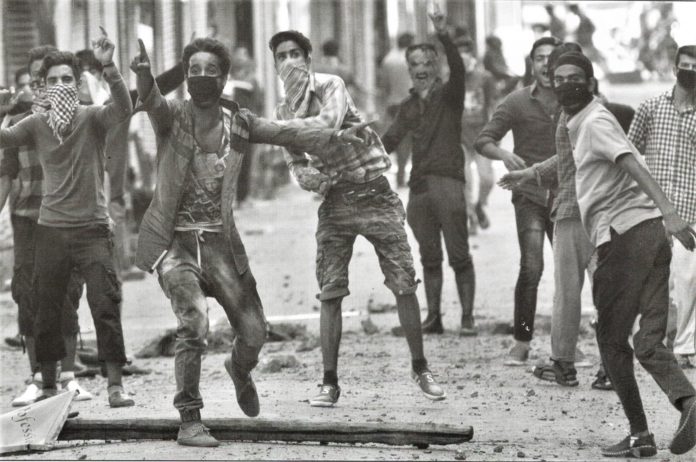This year also Kashmiris observed India’s Republic Day as a “Black Day”. Official celebrations on January 26 were boycotted by Kashmiris living in Indian Occupied Kashmir (IoK); they do it every year. On this day, Pakistani flags are raised at every building to demonstrate collective rejection of the illegitimate Indian occupation. The Kashmir conflict is a humanitarian issue and sense of urgency for its early resolution has gained further traction during recent years.
During his electoral campaign Donald Trump offered to mediate between Pakistan and India on the Kashmir issue. His predecessor Obama had also made a similar pledge during his first term campaign. Hopefully Trump shall not back off like Obama. The UNSG Antonio Guterres has also articulated an intent to help resolve the Kashmir conflict “as an honest broker”. Understandably, the wise words of his predecessor of yesteryears, Mr. Dag Hammarskjöld, would continue to inspire him to do so: “The UN wasn’t created to take mankind into paradise, but rather, to save humanity from hell”. Due to the oppressive nature of Indian rule, the IoK is nothing less than hell; it is often dubbed as a “cage” and “open prison” by Human Rights activists.
An Indian government prompted delegation of the “Concerned Citizens Group” led by former Indian Minister Yashwant Sinha has warned of catastrophic situation in 2017 and 2018 in Jammu and Kashmir if India fails to accept ground realties on the dispute: “Almost every Kashmiri we met said that there was a need for a one-time political settlement.” “Kashmiris see the visits of emissaries of Government of India and civil society groups as farcical exercises and part of a diversionary tactic to handle disturbances in Kashmir,” it said. The report pointed out that policies of India to deal with sporadic bursts of protests and anger in Kashmir are described as ‘time-buying techniques’ which have only worsened the situation.

The IoK is the most militarized zone in the world with one Indian soldier for every 12 Kashmiris. Over the decades Indian occupation forces have massacred over 1.5 million Kashmiris. During the current phase of uprising since 8 July, 2016 they have once again unleashed the reign of terror targeting innocent civilians including children. Pellet guns have been used to deliberately target the eyes of peaceful protestors resulting in permanent blindness of around 1,000 people, including young girls and children.
While addressing the UNGA on April 04, 2106, Mr. Guterres had aptly stated: “It is widely recognized that there is no peace without development and no development without peace; it is also true that there is no peace and sustainable development without respect for human rights.” The quote aptly describes the Kashmir conflict and its impact on the people of Kashmir as well as the region.
Each day Kashmiris are being killed by the Indian forces. Hindu terrorist organs like RSS and its partner outfits alongside the so called “Village Defence Committees” are conducting systemic ethnic cleansing of Kashmiri Muslims in the Jammu region. After assumption of government the BJP party cadres have co-opted Hindu terrorists. This deadly mix is empowered through full covert support from the government machinery, causing displacement of scores of Kashmiri Muslim families. This move is aimed at transforming Muslim majority Jammu district into a Muslim minority district. According to JKLF Chair Yasin Malik “Issuing of domicile certificates to the Hindu refugees is an attempt to change the demographic fabric of Jammu and Kashmir and such nefarious designs will be fought tooth and nail.” Genocide, state terrorism, settlement of non-Kashmiris and other tools are being employed to bring about demographic change. Pakistan is constantly apprising the international community on these matters. During his recent visit to Davos for attending the World Economic Forum Annual Meeting, Prime Minister Nawaz Sharif held a number of sideline meetings to highlight human rights violations of Kashmiris in IoK.
The Kashmir cause is gaining traction amongst the comity of nations. A lengthy debate was held on January 19 by “All Parties Parliamentary Group on Kashmir”, in the House of Commons focusing on the Kashmir conflict and ensuing human rights violations in IoK. International Parliamentarians’ Seminar and numerous other such activities are some of the results of the ongoing campaign by the government of Pakistan and the vocal Kashmiri diaspora.
The Human Rights Watch in its damning Report has amply highlighted the Indian atrocities. UN Human Rights Commissioner had asked during formal session of Human Rights Council for an independent investigation into the human rights violations in IoK. Such a mission would probably fall under provisions of Article 40, Chapter VII of the Charter, and failure to comply with its recommendations would have invoked Article 41. But the UNSC did not respond accordingly, clearly implying that the United Nations is not taking its responsibilities seriously. Few months earlier Amnesty International had also issued a statement and raised concerns. If the United Nations does not assume such a responsibility, then who can those that are the most vulnerable, victims of conflict, terrorism, human rights violations and poverty turn to?
It is often suggested by the Indian side if people of IoK had jobs, there wouldn’t be such turmoil and rebellion in the streets. Indian leadership tends to ignore that the pain of losing one’s son to a bullet or having the honor of one’s mother or sister violated cannot be replaced with a job. The demand for self-determination has become deep and immersed in a bitterness that has no substitute. This has an international dimension that deserves the attention of the UN and the global community.

A plebiscite was promised to the people of Kashmir in 1948, but through various ploys, India has not permitted it, and now claims that Kashmir is an integral part of India. Such a claim has prolonged and exacerbated the conflict between India and Pakistan, despite the fact that the United Nations has passed several resolutions in support of self-determination for the people of Kashmir.
UNSG has stated, “we need a surge in diplomacy for peace. Under the guidance of the Security Council and in accordance with the Charter, the Secretary General should actively, consistently and tirelessly exercise his good offices and mediation capacity as an honest broker, bridge builder and messenger of peace. Full use should be made of the Organization’s convening power, as a forum for dialogue, to ease tensions and facilitate peaceful solutions.” There cannot be a better agency than the UNSG to mediate or facilitate between the parties concerned. Though there will be fierce resistance from India but her negativity is not insuperable.
Welcoming the statement of UNSG that he was willing to play a role of an “honest broker” between New Delhi and Islamabad on the Kashmir issue, All Parties Hurriyat Conference (M) said the issue had remained a cause of confrontation and tensions between the two countries and it was the responsibility of the world body to take meaningful steps for the resolution of the issue in accordance with the wishes and aspirations of Kashmiris. APHC Chairman, Syed Ali Gilani has said that Kashmir dispute should be resolved in its historical perspective keeping in view the aspirations of the Kashmiri people.
The well being of entire South Asia is held hostage to the sense of insecurity radiated by the continuity of open ended Kashmir conflict. A just resolution of the Jammu and Kashmir dispute is essential for normalization of relations between the two countries and the peace and development in the region. Kashmir is the only entity in South Asia which has so far been denied the opportunity to determine its political future. The international community in general and the UNSC in particular have been overlooking the serious human rights violations that have occurred in the disputed territory of Kashmir. This lapse, which represents a great historic injustice, deserves to be corrected. The Black Day observed by Kashmiris is indeed a manifestation of their will to keep struggling until they get their birth right—self-determination.




